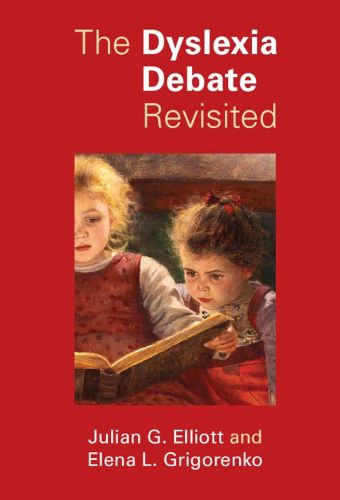Readings Newsletter
Become a Readings Member to make your shopping experience even easier.
Sign in or sign up for free!
You’re not far away from qualifying for FREE standard shipping within Australia
You’ve qualified for FREE standard shipping within Australia
The cart is loading…






In every country, and in every language, a significant proportion of children struggle to master the skill of reading. In 2014, The Dyslexia Debate examined the problematic interpretation of the term 'dyslexia' as well as questioning its efficacy as a diagnosis. Ten years on, The Dyslexia Debate Revisited reflects on the changes in dyslexia assessment and treatment over the last decade, including the introduction of dyslexia legislation in many US states. Addressing the critical responses to their original challenge of the dyslexia construct, Julian G. Elliott and Elena L. Grigorenko also consider why, despite scientific critiques, existing dyslexia conceptions and assessment practices continue to be highly attractive to many professionals, individuals, and families. Based on current scientific knowledge, the authors strive to promote a shared understanding of reading difficulties and emphasize the importance of providing timely and appropriate intervention and support to anyone who faces difficulties with learning to read.
$9.00 standard shipping within Australia
FREE standard shipping within Australia for orders over $100.00
Express & International shipping calculated at checkout
In every country, and in every language, a significant proportion of children struggle to master the skill of reading. In 2014, The Dyslexia Debate examined the problematic interpretation of the term 'dyslexia' as well as questioning its efficacy as a diagnosis. Ten years on, The Dyslexia Debate Revisited reflects on the changes in dyslexia assessment and treatment over the last decade, including the introduction of dyslexia legislation in many US states. Addressing the critical responses to their original challenge of the dyslexia construct, Julian G. Elliott and Elena L. Grigorenko also consider why, despite scientific critiques, existing dyslexia conceptions and assessment practices continue to be highly attractive to many professionals, individuals, and families. Based on current scientific knowledge, the authors strive to promote a shared understanding of reading difficulties and emphasize the importance of providing timely and appropriate intervention and support to anyone who faces difficulties with learning to read.